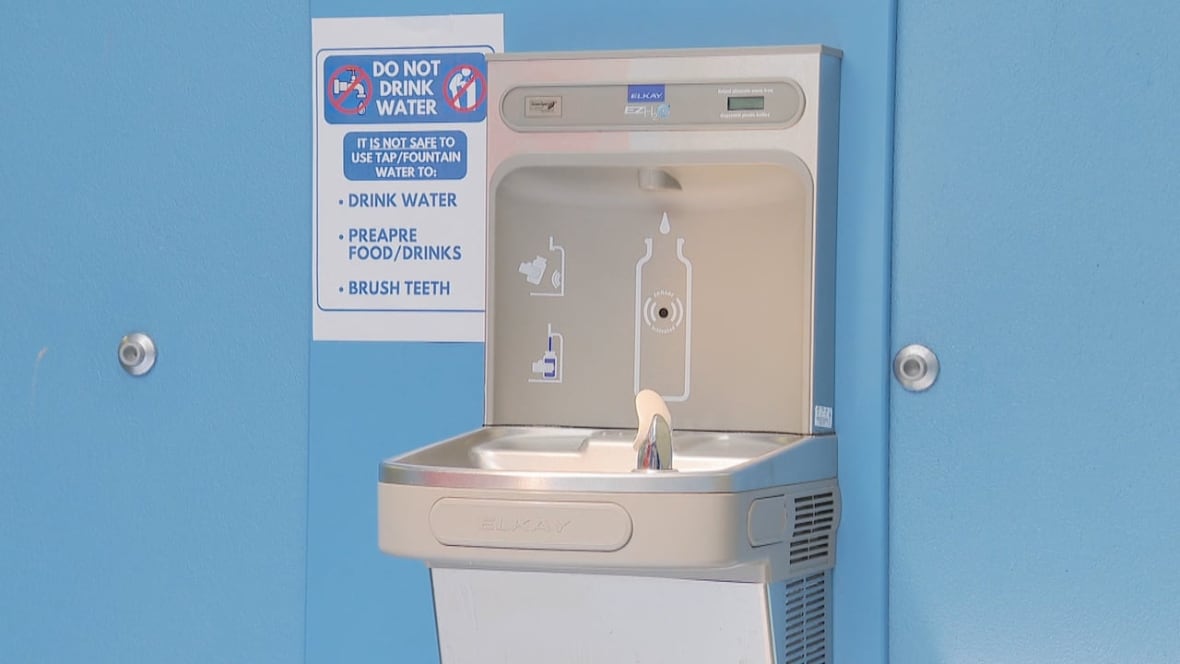Researcher says N.W.T. officials taking right steps after school lead investigation
N.W.T. officials have committed to annual testing moving forward

A health professor who studies lead exposure in Canada says he's confident that the N.W.T. government is responding appropriately to a recent investigation into lead in the drinking water at two Yellowknife schools — and that the priority must be to reduce any ongoing risks.
Earlier this week the N.W.T.'s education minister said her department is committed to implementing the recommendations made by an independent investigator who looked into how the territory responded to the discovery of lead in drinking water at École William McDonald Middle School and Range Lake North School.
Bruce Lanphear is a professor in the department of health sciences at Simon Fraser University whose research focuses on toxic chemicals and children's health. He said Yellowknife school officials reached out to him to talk about the investigation and he spoke with them on Tuesday.
"What I came away with from my meeting this morning was that they are taking all the necessary steps," Lanphear said on Tuesday afternoon.
"They've got a longer-term strategy to make sure that all the sources are mitigated, and that's really what we want them to do now."

In a statement this week, Education Minister Caitlin Cleveland said the investigation confirmed "warning signs were missed, key test results weren't escalated quickly enough and communication between departments and with the public was inconsistent."
Lanphear acknowledged the public concern around the issue.
"Parents are understandably concerned, understandably angry… This should have been dealt with 20 years ago," he said.
Based on the lead levels detected at the Yellowknife schools, Lanphear agrees with the N.W.T.'s chief public health officer that blood lead levels in students and staff would likely not be above the U.S. Centers for Disease Control and Prevention's level of concern, which is 3.5 micrograms per decilitre (µg/dL) for children.
However, Lanphear said even low-level exposure to lead can have effects. Health Canada also says that health effects have been associated with blood lead levels as low as 1 to 2 μg/dL, though it acknowledges "uncertainty associated with effects observed at these levels."
Lanphear says another group at higher risk from lead exposure is pregnant women. His research has found that blood lead levels of 1 μg/dL were associated with a 50 per cent increase in preterm birth.
He says blood testing can be done but there's nothing to do in response to elevated blood lead levels other than reducing further exposure.
"The main thing is to stop it from continuing to happen," he said.
Past and future testing
In 2019, Health Canada updated its guideline for lead in drinking water — cutting the acceptable concentration of the metal in half, from 10 µg/L to 5 µg/L.
The N.W.T. government was looking into doing its own testing for lead in school water around the same time, but plans for that testing fell through. Agata Gutkowska, manager of public affairs and communications for the territory's environment department, says it came down to costs.
"At the time, the water testing program included elements beyond lead. This broader scope increased the overall estimated cost — exceeding $100,000 — which contributed to the decision not to proceed at that time," said Gutkowska.

The N.W.T. government has committed to annual testing of school water going forward, but the cost of that is still being determined. Gutkowska said the cost will depend on things like the number of water outlets and where a school is located. She said the goal is to develop a program that is sustainable for the long term.
The program scope will be determined by a steering committee made up of senior officials from the territory's health, environment, and infrastructure departments, as well as YK Education District No. 1.
Gutkowski said some operational staff who were involved in the initial testing initiative will continue to support future work.
"As the program is formalized under the oversight of the steering committee, roles and responsibilities are being clarified to support a more structured and sustainable approach."
Future testing will take place at schools across the territory including St. Patrick High School in Yellowknife, which was flagged for retesting since its results were below, but close to, the maximum acceptable level for lead in drinking water.

